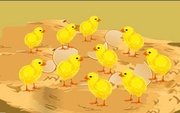Why everyone's suddenly baking bread
Page 1 of 1 • Share
 Why everyone's suddenly baking bread
Why everyone's suddenly baking bread
hèn gì con gái đi kím mua yeast hoài không có 

It's pale, flabby and growing by the hour.
Bread dough is on the rise in homes across the West, as quarantined home bakers exorcise their cabin fever with furious kneading and punching. Manufacturers of commercial yeast -- the tiny living organisms behind good bread, beer and wine -- say demand is soaring to near-unmanageable levels.
"We are producing yeast as fast as possible, however the new demand is simply unprecedented," says US manufacturer Red Star Yeast on its website. "No one could have predicted that yeast would disappear off the shelves so quickly." French, Italian, Canadian and Swiss distributors of baking supplies say the same thing.
Stocking up on ingredients for the staff of life isn't crazy -- many countries have already restricted grain exports amid the global economic slowdown, sensitive to the fact that bread shortages have long been cause for revolution. Wheat futures are up, too.
But there's still plenty of bread in shops -- and the proliferation of boules, baguettes and buns on social media suggest that most home-bakers are hardly hoarding their flour reserves for lean times.
Rather, for those locked into a monotonous daily landscape, unable to help or change the crisis outside, bread-making offers the relief of an all-consuming task: You can't check your phone to mainline infection statistics while up to your elbows in dough.
The sticky process also rebuts the endless routines of disinfection, alcohol wipes and bleach spray: Making bread means getting friendly with micro-organisms, waking dormant yeast with warmth or trapping them wild from the air, nourishing them on flour, marking time by their breath as the dough rises on a scaffolding of air.
"It's funny because only one month ago, everyone was on a gluten-free diet. Now, suddenly everyone is a baker," says Maddalena Borsato, a researcher in the philosophy of bread at Turin's University of Gastronomic Sciences, and a former baker at several of Italy's most legendary pasticcerias.
In Italy and France, where great bakeries are around every corner, the rush to make bread at home is particularly unusual. Borsato hypothesizes that it has to do with solidarity despite social distancing.
"It's something you don't do only for yourself, you do it also for others," she says. "Everyone is baking a lot and posting and sharing photos of their bread but they cannot actually share their bread, so it's shared in a symbolic way."
Plus no one will be the wiser if you eat the whole loaf.


It's pale, flabby and growing by the hour.
Bread dough is on the rise in homes across the West, as quarantined home bakers exorcise their cabin fever with furious kneading and punching. Manufacturers of commercial yeast -- the tiny living organisms behind good bread, beer and wine -- say demand is soaring to near-unmanageable levels.
"We are producing yeast as fast as possible, however the new demand is simply unprecedented," says US manufacturer Red Star Yeast on its website. "No one could have predicted that yeast would disappear off the shelves so quickly." French, Italian, Canadian and Swiss distributors of baking supplies say the same thing.
Stocking up on ingredients for the staff of life isn't crazy -- many countries have already restricted grain exports amid the global economic slowdown, sensitive to the fact that bread shortages have long been cause for revolution. Wheat futures are up, too.
But there's still plenty of bread in shops -- and the proliferation of boules, baguettes and buns on social media suggest that most home-bakers are hardly hoarding their flour reserves for lean times.
Rather, for those locked into a monotonous daily landscape, unable to help or change the crisis outside, bread-making offers the relief of an all-consuming task: You can't check your phone to mainline infection statistics while up to your elbows in dough.
The sticky process also rebuts the endless routines of disinfection, alcohol wipes and bleach spray: Making bread means getting friendly with micro-organisms, waking dormant yeast with warmth or trapping them wild from the air, nourishing them on flour, marking time by their breath as the dough rises on a scaffolding of air.
"It's funny because only one month ago, everyone was on a gluten-free diet. Now, suddenly everyone is a baker," says Maddalena Borsato, a researcher in the philosophy of bread at Turin's University of Gastronomic Sciences, and a former baker at several of Italy's most legendary pasticcerias.
In Italy and France, where great bakeries are around every corner, the rush to make bread at home is particularly unusual. Borsato hypothesizes that it has to do with solidarity despite social distancing.
"It's something you don't do only for yourself, you do it also for others," she says. "Everyone is baking a lot and posting and sharing photos of their bread but they cannot actually share their bread, so it's shared in a symbolic way."
Plus no one will be the wiser if you eat the whole loaf.
_________________


8DonCo
 Re: Why everyone's suddenly baking bread
Re: Why everyone's suddenly baking bread
 thiệt đó chứ.. hùi sáng này tui đi chợ qua hành bột thì loại cake flour hong còn, bình thường là đầy dẫy shelves đủ hiệu.. chi con lèo tèo all purposed flour mà tui thì còn , về nhà coi lại gói bột chắc đủ để làm vài ổ banana nut breads cho mấy con nhỏ cháu nhờ tui làm.. mai mốt chắc fải kêu tụi nó đi mua đồ tui chỉ ra công and tốn $$$ đien and nước thui..
thiệt đó chứ.. hùi sáng này tui đi chợ qua hành bột thì loại cake flour hong còn, bình thường là đầy dẫy shelves đủ hiệu.. chi con lèo tèo all purposed flour mà tui thì còn , về nhà coi lại gói bột chắc đủ để làm vài ổ banana nut breads cho mấy con nhỏ cháu nhờ tui làm.. mai mốt chắc fải kêu tụi nó đi mua đồ tui chỉ ra công and tốn $$$ đien and nước thui..
_________________
Một ngày như mọi ngày..
Đi vào lại đi ra..

Newtexas
 Re: Why everyone's suddenly baking bread
Re: Why everyone's suddenly baking bread
Trước đây 0 có thời gian nhồi bột rồi ngồi chờ cho bột nổi nên đi ra ngoài mua. Bây giờ thì cứ đi ra, đi vô nên nhiều người trổ tài.
Tui thì vẩn 0 có patience để làm bánh mì even now. (Và cũng 0 yeast để làm)
Tui thì vẩn 0 có patience để làm bánh mì even now. (Và cũng 0 yeast để làm)

ga10
Page 1 of 1
Permissions in this forum:
You cannot reply to topics in this forum
 Home
Home Latest images
Latest images